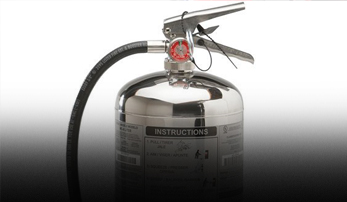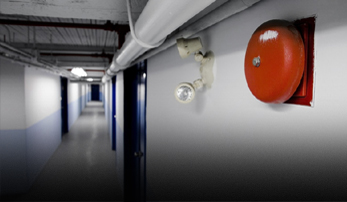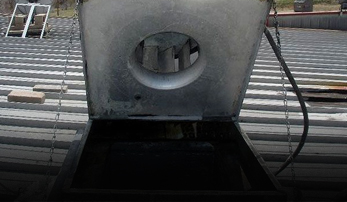From Coastal Resilience to National Reforms Tracking Nigeria’s Progress, breaking news in nigeria to_12
- From Coastal Resilience to National Reforms: Tracking Nigeria’s Progress, breaking news in nigeria today 24/7, and Navigating a Dynamic Future.
- Coastal Resilience and Climate Change Adaptation
- Economic Diversification and the Petroleum Sector
- National Security and Regional Stability
- Healthcare Infrastructure and Public Health Initiatives
From Coastal Resilience to National Reforms: Tracking Nigeria’s Progress, breaking news in nigeria today 24/7, and Navigating a Dynamic Future.
Nigeria, a nation brimming with potential and facing complex challenges, continues to evolve on multiple fronts. Recent developments span from ambitious infrastructure projects and economic reforms to crucial initiatives addressing long-standing security concerns. Understanding these shifts is vital, particularly in the context of a rapidly changing global landscape. This ongoing period of transformation necessitates a comprehensive overview of the key areas of development, the hurdles encountered, and the predicted trajectory for the future. Breaking news in nigeria today 24/7 highlights the immediacy and dynamic nature of these events, underscoring the need for informed analysis and proactive engagement.
The vibrancy of Nigerian society, combined with its strategic geopolitical importance, makes it a focal point for regional and international attention. This is a nation striving for progress despite substantial obstacles, and its journey is one filled with both promise and peril. Examining the current state of affairs requires a nuanced approach, acknowledging both the achievements and the areas where further work is crucial. The narrative of Nigeria is continually being written, and staying abreast of the latest developments is essential for appreciating the complexities of this fascinating and influential country.
Coastal Resilience and Climate Change Adaptation
Nigeria’s extensive coastline is particularly vulnerable to the impacts of climate change, including rising sea levels, coastal erosion, and increasingly frequent extreme weather events. Communities reliant on fishing and agriculture are directly affected, and the economic consequences are substantial. The government, along with international partners, is implementing strategies to enhance coastal resilience. These include mangrove reforestation projects, the construction of protective infrastructure, and the development of early warning systems for natural disasters. Addressing these threats is paramount to securing the future of coastal communities and safeguarding the nation’s economic interests.
Effective climate change adaptation requires a holistic approach, taking into account the social, economic, and environmental dimensions of vulnerability. Investing in sustainable infrastructure, promoting climate-smart agricultural practices, and empowering local communities to participate in decision-making processes are essential steps toward building a more resilient future. The success of these initiatives hinges on strong governance, adequate funding, and a commitment to long-term sustainable development.
| Sea Level Rise | Construction of Sea Walls | $50 Million |
| Coastal Erosion | Mangrove Reforestation | $25 Million |
| Extreme Weather Events | Early Warning Systems | $10 Million |
Economic Diversification and the Petroleum Sector
For decades, Nigeria’s economy has been heavily reliant on the petroleum sector, making it susceptible to fluctuations in global oil prices. Recognizing the need for diversification, the government is actively pursuing strategies to promote growth in other sectors, such as agriculture, manufacturing, and technology. This includes incentivizing private investment, improving infrastructure, and creating a more favorable business environment. Although challenges remain, these efforts represent a crucial step toward achieving sustainable economic development.
The transition to a diversified economy is complex and requires a long-term vision. It involves addressing structural constraints, tackling corruption, and investing in human capital development. Strengthening governance, improving transparency, and fostering innovation are key to unlocking Nigeria’s economic potential. The exploration of renewable energy sources, such as solar and wind power, also presents an opportunity to create new jobs and reduce dependence on fossil fuels. Efficient and equitable distribution of resources remains a critical element of this process.
- Agricultural Value Chain Development
- Investment in Manufacturing Sector
- Promotion of Tech Startups
- Development of Renewable Energy Sources
National Security and Regional Stability
Nigeria faces significant security challenges, including the Boko Haram insurgency in the northeast, banditry in the northwest, and farmer-herder conflicts in the central region. These conflicts have resulted in widespread displacement, loss of life, and economic disruption. The government is employing a multi-pronged approach to address these issues, involving military operations, intelligence gathering, and community engagement. However, a comprehensive and sustainable solution requires addressing the root causes of conflict, such as poverty, inequality, and lack of opportunity.
Regional stability is also critical to Nigeria’s security. Collaborating with neighboring countries to combat terrorism, transnational crime, and illegal arms trafficking is essential. Strengthening border security, promoting cross-border cooperation, and addressing the underlying drivers of instability are vital steps toward creating a safer and more secure environment for all. A focus on diplomacy, dialogue, and inclusive governance can help to prevent and resolve conflicts before they escalate.
Healthcare Infrastructure and Public Health Initiatives
Improving healthcare infrastructure and strengthening public health systems are critical priorities for Nigeria. Access to quality healthcare remains a challenge, particularly in rural areas. The government is investing in primary healthcare facilities, training healthcare workers, and expanding health insurance coverage. Addressing the prevalence of infectious diseases, such as malaria, HIV/AIDS, and tuberculosis, also requires sustained attention and resources.
Strengthening disease surveillance systems, improving sanitation and hygiene practices, and promoting health education are essential components of a robust public health program. International partnerships play a vital role in providing technical assistance, funding, and expertise. Innovative approaches, such as mobile health technologies and community-based health programs, can help to reach underserved populations and improve health outcomes.
- Investments in Primary Healthcare
- Training of Healthcare Personnel
- Expansion of Health Insurance Coverage
- Strengthening Disease Surveillance
| Infant Mortality Rate (per 1,000 live births) | 74 | 68 |
| Life Expectancy at Birth (years) | 55 | 56 |
| Access to Healthcare (%) | 40 | 45 |
Nigeria stands at a pivotal moment in its history, navigating a complex landscape of challenges and opportunities. Progress in coastal resilience, economic diversification, national security, and healthcare is essential for realizing the nation’s full potential. Continued investment in infrastructure, human capital, and good governance is vital for ensuring a brighter future for all Nigerians. The dynamism demonstrated by the country’s populace offers a strong foundation for sustainable growth and development.
The path forward requires a collaborative effort involving government, civil society, the private sector, and international partners. By embracing innovation, fostering inclusivity, and prioritizing the well-being of its citizens, Nigeria can overcome its challenges and emerge as a regional leader, setting an example for sustainable development and progress. Successfully navigating the complexities of the 21st century will demand adaptability, resilience, and a steadfast commitment to long-term vision.









Recent Comments